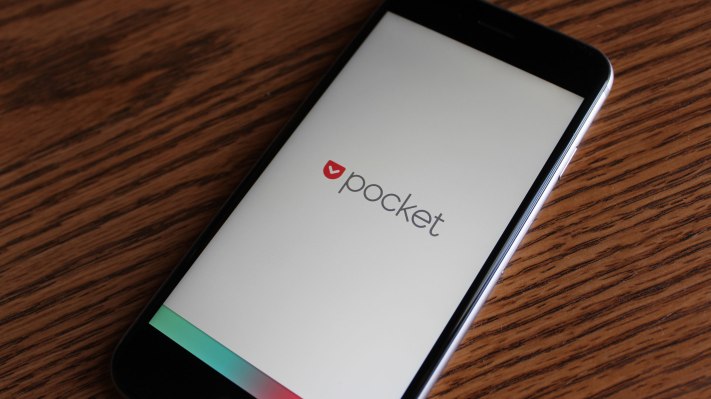Mozilla bought content time-shifting app Pocket today for an undisclosed amount, the companies announced simultaneously on their blogs. What started as a handy Firefox plug-in for saving articles you didn’t have time for became more and more closely integrated with the browser, and today they’re making it official.
Pocket lets you hit a button to save a long article for later reading, minus ads and any annoying formatting. Fittingly, it was originally known as Read it Later, and was in a long-running feud with apps that accomplished much the same thing: Evernote, Instapaper, Readability and, eventually, Apple’s own Reading List.
While Evernote ballooned in scope and Readability folded, Pocket has seen modest continuous success in its original mission, funded by increasing rounds totaling $14.5 million, the latest being a $7 million C round in early 2015 led by Foundation Capital. A few months later, it was promoted from Firefox plug-in (or add-on, whichever it is) to built-in feature. As often happens when two young, idealistic companies begin to spend time with one another, that crush blossomed into love.
“In working closely with Pocket over the last year around the integration within Firefox, we developed a shared vision and belief in the opportunity to do more together that has led to Pocket joining Mozilla today,” read Mozilla’s press release. How romantic!
I spoke with Pocket founder Nate Weiner and Mozilla’s chief business and legal officer, Denelle Dixon, about the deal.
As for how the company can be better integrated than a default button, Weiner said that there’s still lots to do in bringing Pocket into the fold on different platforms, like mobile. Dixon observed that Pocket and Mozilla are both all about letting users get the experience they deserve, and that shouldn’t differ across platforms and devices.
Last year Pocket announced the details of its plan to make money: essentially a content recommendation service that serves sponsored pieces to people whom the company determines would be interested in them. It’s proven modestly successful, and Mozilla has no plan to fix what ain’t broken.
“We want them to continue what they’re doing,” Dixon said. The Pocket approach to monetization has “always been very user-first,” she noted, which fits with the Mozilla mission.
“For the web to be healthy there has to be a business model that supports it,” Weiner added. He thinks Pocket’s is just that.
I asked about how Pocket would be included with Mozilla’s open source project: Is it coming soon? Are there existing licenses to work around? Will people be able to port it to Commodore 64 or host it on their BBS?
Sadly, my handwriting is too poor to read the many insightful answers from Weiner on this part, but he indicated that the plan is to get the code into open source as soon as possible, and that all those things were possibilities. “We want to get the community involved,” reads the one legible portion of my notes.
Dixon said that Mozilla will be conducting a full audit of the Pocket code soon to look for any license encumbrances or other obstacles to open-sourcing. They declined to give any timeline, though.
For now, you can expect Pocket to continue operating exactly as it has for the last few years.
